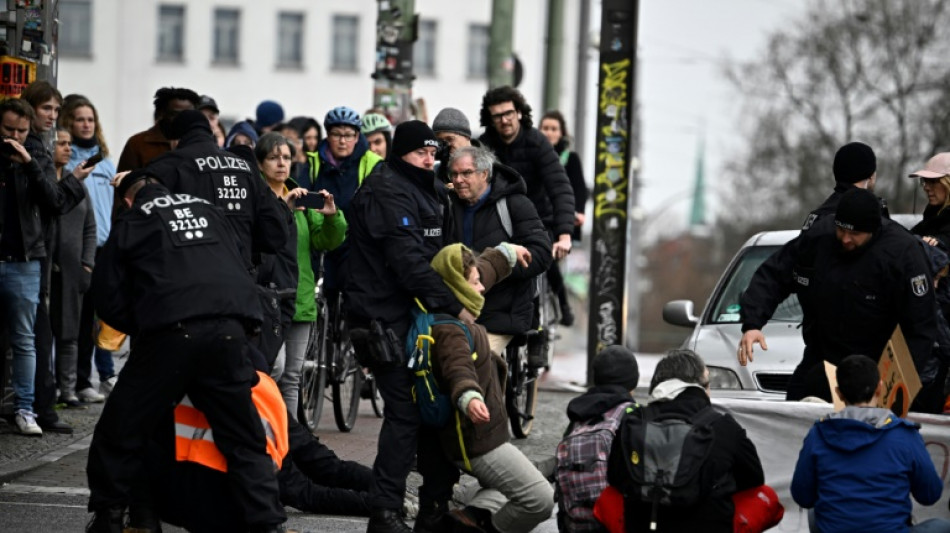
RBGPF
-0.5000


German activist Lina Eichler regularly used to stick her hands to roads to block traffic in protest at what she saw as inaction in combating the climate crisis.
Now the 21-year-old can be found sticking up posters in Berlin as her environmental group Letzte Generation (Last Generation) vies for votes at the forthcoming EU elections.
The climate activists -- known for controversial protests ranging from throwing mashed potato at paintings to storming airports -- are moving into mainstream politics by contesting this month's European Parliament polls.
The group is aiming to "get out there and get people talking about the coming climate catastrophe," Eichler told AFP, as she stuck up a red poster showing a flame under the word "ALARM".
Letzte Generation -- whose tactics have proved deeply divisive, and have led to some of their members being convicted -- are making the push as they feel global warming has dropped down the political agenda in many countries.
For the group, Germany's Green party, which is part of Chancellor Olaf Scholz's three-way coalition, has failed to bring about real change in favour of the environment.
"People have the impression that with the Greens in government, the situation is improving, but that's not true -- they're doing absolutely nothing," said Eichler.
- 'Elephant in the room' -
Environmental parties across Europe like the Greens had enjoyed a strong showing at the last EU elections in 2019, but have since steadily lost ground.
In Germany, the Greens captured 20.5 percent of the vote. But their popularity slumped to just 12 percent in April, the lowest level since 2018.
Climate activists have criticised the party over moves such as the temporary reopening of coal-fired power stations in 2022 and increased imports of liquefied natural gas after Russia slashed energy supplies following its invasion of Ukraine.
"The Greens are being criticised both from the right, because their measures threaten the economy, and from the left, because they have given up on their climate objectives," Marie Krpata, an expert on German politics at the French Institute of International Relations, told AFP.
The Letzte Generation wants to put climate back at the centre of the debate.
"There's an elephant in the room we're not talking about, and that's the climate crisis. We're here to bring it out into the open", said Carla Hinrichs, 27, co-founder of Letzte Generation and one of the group's election candidates.
Asked if her group's participation could be counter-productive by sapping support from the Greens, Hinrichs said it is "not our problem".
"The Greens are gradually throwing their values overboard and making compromises that are unsustainable."
- 'Shake up parliament' -
While not running in the polls, the German branch of Greta Thunberg's Fridays for Future movement is also using the vote as a chance to raise awareness about the climate crisis.
The organisation called for protests in towns and cities across the country ahead of the elections, and has launched a campaign called "RecoverTikTok" in a challenge to the far right, which has been successful in using the popular social media platform.
"We need to defend what has already been achieved and make further progress possible," said Luisa Neubauer, the movement's German leader.
Speaking at a demonstration in Berlin, protester Jonathan Roessler told AFP that he planned to vote for the far-left Die Linke party, which has environmental activist Carola Rackete heading the list.
"The Greens are not as radical as they need to be," he complained.
For its part, Letzte Generation is organising rallies that involve blockading streets, bridges and squares.
If any of its candidates are elected, they are promising "one action" a month in the European Parliament to highlight that more needs to be done to combat climate change.
No polling has been conducted to indicate how well the group might do at the elections but they are aiming to attract at least 200,000 votes, and to win at least one seat.
Still, they don't plan on seeking to push specific legislation or to join a political coalition.
"We don't want to participate, but rather to shake up parliament and bring our protests to it," said Hinrichs.
T.Dixon--TFWP